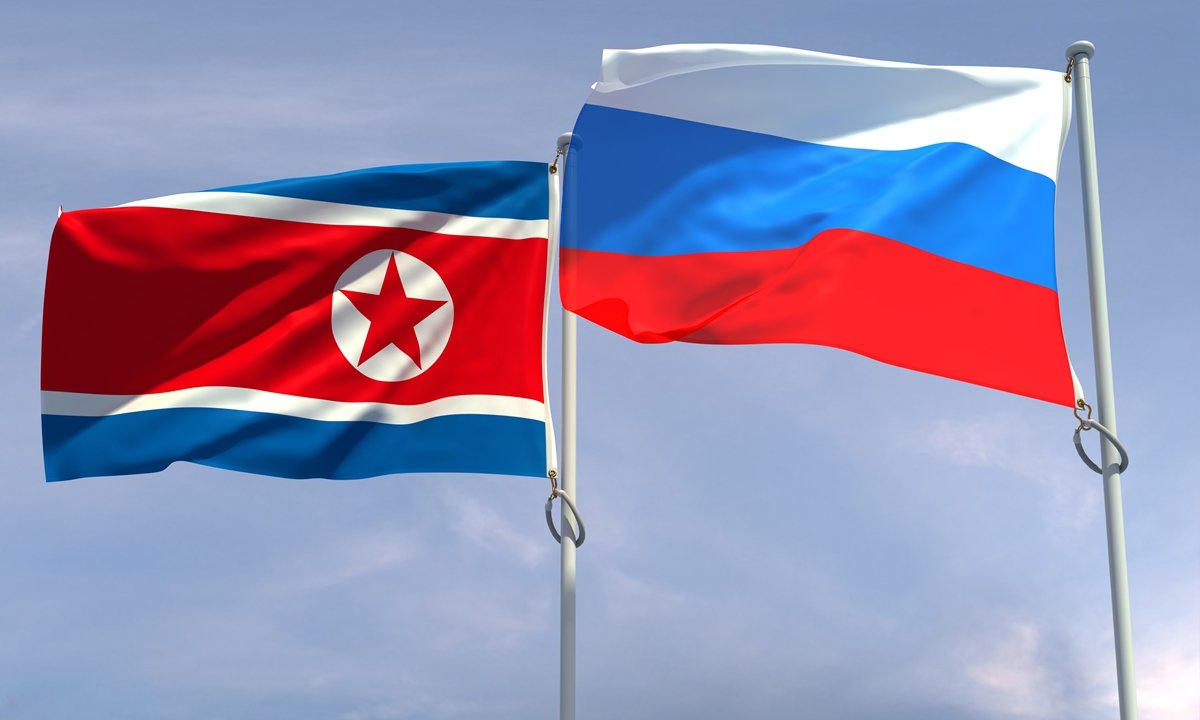North Korean leader Kim Jong-un’s recent departure for Russia was officially announced on Tuesday by the Korean Central News Agency (KCNA). The journey to Russia, which began by train from Pyongyang on Sunday, marks an essential step in the ongoing diplomatic dances of the region. Experts speculate that the primary agenda for Kim’s meeting with Russian President Vladimir Putin is to bolster the bilateral ties between the two nations. This move is perceived as a counter-strategy against the escalating Western isolation both nations currently face.
Upon reaching the Russian border, Kim Jong-un was received by Russia’s Natural Resources and Environment Minister Alexander Kozlov at Khasan station in the Primorye Region. This detail was confirmed by Russia’s renowned TASS news agency.
Interestingly, a meeting between the North Korean leader and President Putin is imminent, as confirmed by Dmitry Peskov, the Kremlin spokesperson. While the exact location of their discussion remains undisclosed, Peskov hinted at a venue in the Far East. This significant dialogue will feature discussions between the respective delegations and also an exclusive tête-à-tête between Kim and Putin. This one-on-one will be succeeded by an official dinner. However, Peskov made it clear that no media briefing or press conference is scheduled for this event.
Focusing on the core of this diplomatic rendezvous, Peskov articulated the Russian perspective: “The DPRK is our neighbor. Like with any other neighbor, we find it imperative to cultivate mutually rewarding ties. This sentiment is echoed and acted upon consistently by President Putin.”
In the backdrop of these developments, China, a significant player in the region’s geopolitics, offered its perspective. Mao Ning, the spokesperson for China’s Ministry of Foreign Affairs, commented that Kim’s visit to Russia is a mutual arrangement between both countries.
Yang Jin, a seasoned research fellow from the Institute of Russian, Eastern European and Central Asian Studies at the Chinese Academy of Social Sciences, shared his insights with the Global Times. Emphasizing the mounting diplomatic strain both North Korea and Russia are enduring from Western nations, Yang stressed that strengthening bilateral relations is paramount. Such an alliance could counteract some adverse effects of the West’s ostracization. Moreover, a fortified Russia-North Korea partnership can recalibrate the geopolitical dynamics in Northeast Asia, especially given the intensifying regional security landscape.
The U.S., along with its Asian allies, is closely monitoring this collaboration. This heightened scrutiny was evident when Matthew Miller, the US State Department spokesperson, cautioned both nations against any arms transfers, citing violations of several UN security council resolutions. This cautionary stance was prompted by recent speculations over North Korea’s possible arms supply to Russia for its operations in Ukraine. Such potential negotiations had previously been hinted at, causing the U.S. to warn North Korea of consequences.
South Korea, too, remains vigilant. Their Defense Ministry, via spokesperson Jeon Ha-kyu, confirmed that they are meticulously tracking the progress of any negotiations between Russia and North Korea, particularly concerning arms deals and technology exchanges.
Yang perceives the U.S.’s admonitory stance as indicative of its growing apprehensions. The possibility of Russia gaining military reinforcements unnerves the West, prompting them to manipulate public opinion against North Korea’s arms supplies.
However, there’s a consensus among observers that Russia is far from depleting its arms arsenal. In a recent meeting at the 8th Eastern Economic Forum in Vladivostok, Putin confidently stated that innovative arms based on new physical principles would ensure Russia’s security in foreseeable future.
Analysts like Song Zhongping, a notable Chinese military expert, feel that U.S. sanctions have inadvertently nudged North Korea and Russia towards a closer alliance, potentially paving the way for a strategic partnership. Song opined that military collaboration might be on the discussion table, given the complementary military capabilities of both nations. He elucidated, “Russia’s technological prowess can be invaluable for North Korea, while Pyongyang can reciprocate by augmenting Moscow’s arms and ammunition production.”
Furthermore, Li Haidong, a professor at China Foreign Affairs University, commented on the U.S.’s visible unease over the strengthening bond between Russia and North Korea. According to Li, the U.S. is experiencing the ramifications of its actions. The continual South Korea-U.S. military drills have only widened rifts in Northeast Asia, facilitating closer cooperation between nations like Russia and North Korea.
Highlighting recent military activities, the U.S. and South Korea recently executed a large-scale joint military exercise. The annual Ulchi Freedom Shield exercise, spanning 11 days, comprised approximately 30 field training events, simulating an all-out war scenario. Reports suggest that this year’s exercises surpassed previous ones in terms of scale and intensity.
In summary, Kim Jong-un’s visit to Russia underscores a pivotal moment in Asian geopolitics. As Western pressure mounts, nations like North Korea and Russia are looking for alliances to counterbalance these influences. The outcomes of the forthcoming talks could reshape the strategic landscape of Northeast Asia.
Read More:
